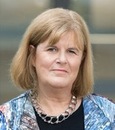
Prof. Dame Linda Partridge
Wednesday, 03 April 2019 at 18:00
Print Media Academy, Kurfürsten-Anlage 52-60, Heidelberg
Kindly supported by Manfred Lautenschläger Stiftung
Prof. Dame Linda Partridge, Director of the Institute of Healthy Ageing at University College London and founding director of the Max Planck Institute for Biology of Ageing in Cologne, Germany
What if getting old didn’t mean getting ill?
Abstract
Although we're living longer in most parts of the world, advancing age has been revealed as the major risk factor for serious diseases, including cancer, cardiovascular disease and dementia.
Increasing interest is therefore turning to the potential for intervening in the ageing process itself to prevent multiple age-related diseases simultaneously. Ageing does indeed turn out to be a malleable process and, surprisingly, to have much in common between humans and laboratory animals.
Recent discoveries have revealed that existing drugs can be repurposed to combat ageing, and that it may well be possible to keep us healthier for longer as we age.
Biography
Linda Partridge works on the biology of ageing. Her research is directed to understanding both how the rate of ageing evolves in nature and the mechanisms by which healthy lifespan can be extended in laboratory model organisms. Her work has focussed in particular on the role of nutrient-sensing pathways, such as the insulin/insulin-like growth factor signalling pathway, and on dietary restriction.
She is the recipient of numerous awards, including the Royal Society’s Croonian Prize Lecture, and was honoured with a DBE for Services to Science in 2009. She is a Fellow of the Royal Society, the Academy of Medical Sciences and the American Academy of Arts and Sciences. She is Director of the Institute of Healthy Ageing at University College London and the founding director of the Max Planck Institute for Biology of Ageing in Cologne, Germany.